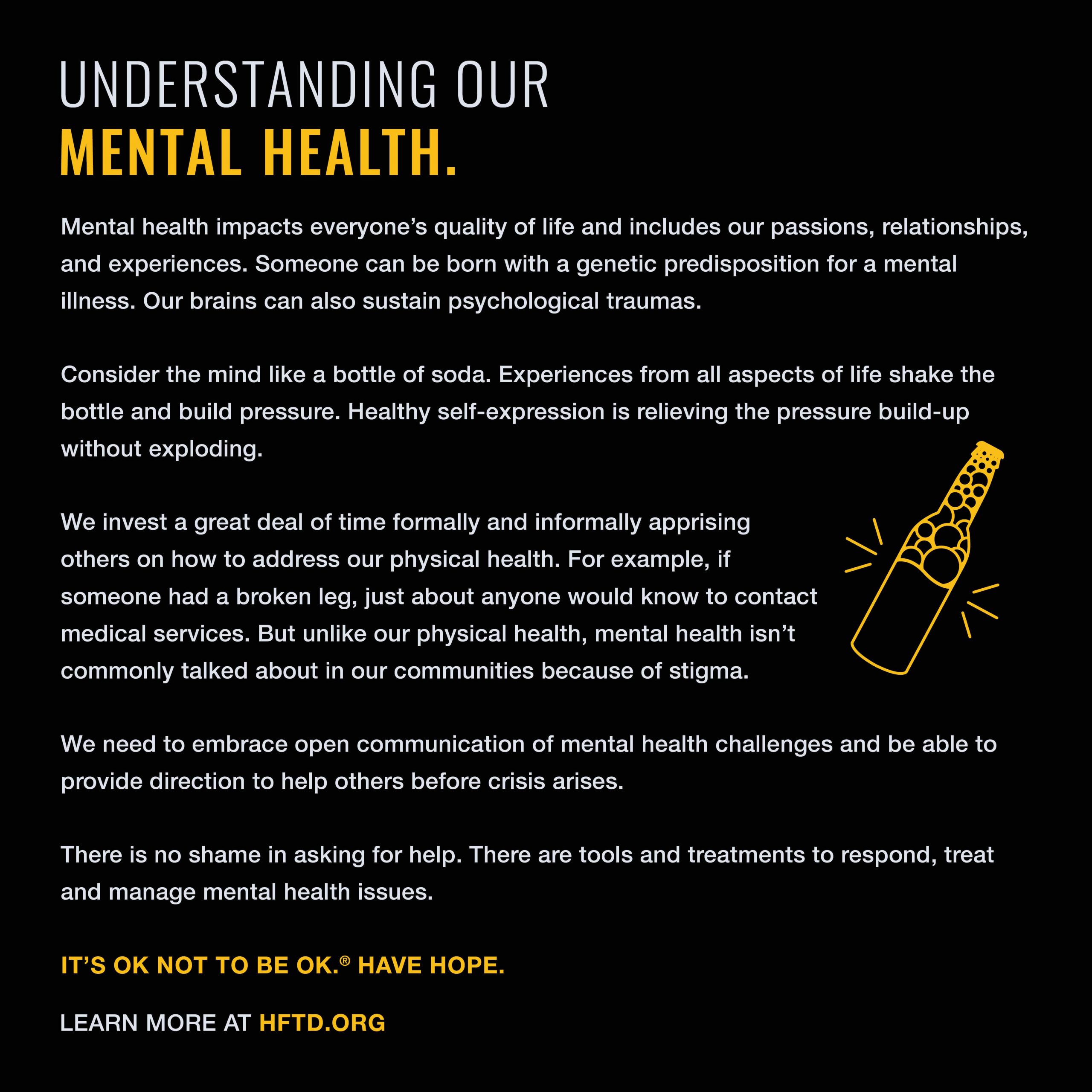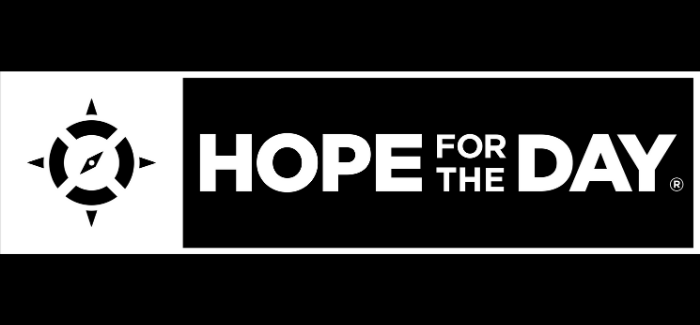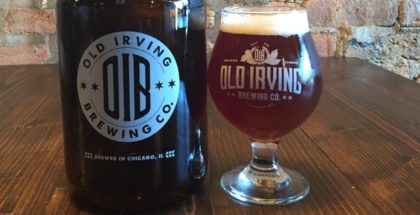Mental Health Is Not a Competition | A Conversation With Hope for the Day
Message from the author: This story discusses suicide and other sensitive themes concerning mental health in an adult manner. While the intent of this reporting is to help destigmatize conversations about mental health, its content may be sensitive to some readers. In addition, it includes dialogue that contains explicit language, which has been left unedited out of respect for the authenticity of the interview that was conducted.
Please take this into consideration before reading.
Take a deep breath… Here we go.
Life sucks sometimes. So much, in fact, that contemplating suicide — unfathomable as it may be to some — sometimes claws at the darkness long enough that it suffocates all light. I’ve thought about it. Multiple times. Usually, a day or two after drinking way too much for my own good, weighing whether the shame and regret from repeated mistakes I knew I was making were too heavy for me to keep carrying alone, in silence. I’d ask myself if I was worth saving. I was. And I still am.
A few years ago, I landed on a guy’s radar who saw value in my story that I didn’t see in myself. He offered me the opportunity to take over leading a social-impact organization, Better Drinking Culture, he founded with the mission to shift our culture’s relationship with alcohol in a healthier and more positive direction. The very thing that I often misused and invited in to have its way with me is now a cherished craft that I have immense respect and appreciation for. But, I’m still human, and shit still happens.
I share this for context. My role in the industry of alcohol has exposed something that I didn’t realize I had been denying for longer than I’ve been drinking legally. I used as much booze as I could stomach to manipulate, attack, deflect, avoid and cope. This relatively recent heightened awareness has gifted me a sensitivity for those who are going through it (we all are) and fundamental camaraderie for those who are trying to do the right thing and help.
A guiding light throughout the entire length of the tunnel is Hope for the Day (HFTD) — a non-profit movement empowering the conversation on proactive suicide prevention and mental health education. After attending a virtual seminar led by HFTD’s founder and CEO, Jonny Boucher and their public policy director, Joel Frieders during last year’s Craft Brewers Conference, it was evident that HFTD is having the conversation we all need to be a part of.
Their mantra, “It’s OK not to be OK” is so universally understood that, without knowing anything else, you’re probably already nodding in agreement. I got to Zoom with Frieders about why it’s OK not to be OK, why we actually shouldn’t ask, “Why?” when someone isn’t and how HFTD is impacting the beer scene one conversation at a time. Fair warning: Frieders does not mince words or sugarcoat anything, and he gives all the fucks.
PD: The first thing I noticed about HFTD was that you’re walking the walk. It’s clear that you’re serious about the work you do — the care is tangible. But, the alcohol industry tends to shy away from addressing mental health in terms of employee support or consumer-facing messaging. Instead, they file all well-intended attempts under “Please drink responsibly,” and expect us to figure out the rest by trial and error. So, how did HFTD find itself so welcomed in craft beer culture?
Joel Frieders: It all started with relationships. I’m such a fanboy of breweries as it is, but once I started diving into my role at HFTD, I realized that no one ever talks about their brain when they talk about alcohol. They assume that the word “alcohol” stops the conversation because it’s a depressant — a topic as a place where we’re not supposed to go.
We hear, “Don’t drink and drive” and “Don’t drink while pregnant,” but mental health is never mentioned in any of it. We don’t talk about mental health because we’re afraid it could lead to a conversation about depression. Fuck that. Mental health is an entry point into every conversation about addiction and all the -isms.
The conversation just wasn’t being had, so to ignite it within the industry we did our first beer collaboration, Hops for Hope, with Old Irving Brewing Co. out of Chicago. Suicide plays a huge part in their story.
Just after they broke ground, chef Homaro Cantu completed suicide in 2015 — in the space where their brewery was to be built. So, if you can picture this, we were brewing a beer in the shadow of the location where he had completed. We brewed it in honor of not only his legacy but Old Irving surviving in the wake of their community’s loss. That impact was not lost on any of us. Because when you understand how hard it is to even fucking move after something like that, to watch the team at Old Irving recover and persevere the way they have — it’s fucking powerful.
That beer, with a label designed as a piece of suicide awareness education, was the start of creating resources that a brewery could then literally deliver to their community. We knew people were going to be weirded out and uncomfortable with us talking about mental health and suicide prevention on a beer can. But, you solve the crisis of mental health by allowing people to tell the stories they need to tell.
View this post on Instagram
With something as meaningful, albeit intense, as that, what’s still perpetuating the stigma about (talking about) mental health?
To begin with, we first have to acknowledge that these are long-ingrained, deep-seated stigmas. But, a lot of it has to do with people not wanting to be seen as uncool adjacent to a topic that historically is treated as cheap or corny — if you’re caught talking about your thoughts, feelings or emotions. In the U.S., 132 people complete suicide every day. We have to talk about it.
We can’t always default to the façade that life is always supposed to be rainbows, unicorns and butterflies. There’s not a cute meme for talking about mental health. So, two things are at play. The first is the stigma itself — that’s the hurdle. The second is the method by which we use to jump over that hurdle. If anything (or anyone) is seen as weak or uncool, it’s not going to fly. So, I think that the only real way to make an impact in the industry is to have its people setting the standard. Our collaboration with Old Irving did that. And while some of our collaborations, particularly with smaller breweries, may not make a ton of money [for the cause], it’s more important that we get eyes and ears on the topic.
People inherently want the best for themselves and the people around them, but when it comes to mental health, especially in the alcohol industry, we don’t think we have the right to go there because of how it might look. And that’s the bullshit that we’re trying to fuckin’ hose off.
Let’s talk etiquette and approach. Take us to school on what to say and what not to say when talking to a friend or loved one whom we’re concerned might be in a dark place and even remotely considering suicide.
How would you talk to a 10-year-old? You won’t talk down to them because you know they’re capable of cognitive thought, but you’re not going to make things more complicated than they are.
The question I’m asked the most is, “What do I say?” The easiest way to help a friend who’s going through shit — to help them release their imaginary valve that regulates the pressure that’s building up from the shit they’re going through — is to encourage them to talk.
Listen, some people just don’t want to talk. Sometimes it may take them a beer to feel vulnerable enough. Or, you may have to start with any fucking ice breaker that has nothing to do with the shit. Then, once the ice is broken, letting someone talk is far more important than having the right thing to say. There’s no trophy you’ll ever win for not listening. Being available and letting someone talk is the win.
Your role is not to shrug off someone’s pain by one-upping them with why yours is worse. It’s to not make them feel worse. The easiest way to not do that fuckin’ shit is to sit down, listen and get educated. Mental health is not a fucking competition.
Understood. Now, if your friend needs to hear you say something in response to what they’ve just unloaded on you, what do you say after you’ve listened to them?
If someone tells you all the things that are fucking with them right now, it’s two words: That sucks. I didn’t place any [blame] on them, I didn’t fuckin’ pile on, I didn’t make their day worse. I’m allowing them to exist the way that they’re currently existing — because it’s OK not to be OK.
What you’re giving them is your attention — that’s what fucking matters. You’re not gonna cure somebody. When somebody tells you what they’re going through, what you don’t do is use the word “why.” Why leads to a justification.
Why should a person have to defend the way that they’re feeling?! Instead, you can ask: What made you feel that way? When did that happen? How did we get here? We avoid the “why” because the “why” doesn’t fucking matter. It creates defensiveness because you’re pressuring someone to justify something that may be beyond their control. There should not be the word “why” in any conversation when you’re actively listening. The why is just where they are.
To be an advocate or to be on someone’s side, we often think that we have to do something. It’s actually the lack of trying to do everything that helps. Give them your unfuckingbridled attention, and make sure the look on your face says you care. If you’re rolling your fuckin’ eyes at someone who’s trying to unpack their shit, that doesn’t help either.
The formula isn’t elaborate or complicated.
View this post on Instagram
If all else fails in trying to extend sincere concern or help for someone who’s in a dark place, what should you do next?
There are different approaches, depending on the severity. The consistent American approach is, “Let me know if you need something.” And then hit send or hang up.
The important move in any situation is presence — stay there. You need to know that you aren’t going to be able to solve every problem, so you at least better fucking stick around. If the situation is escalating and they’re at risk of harming themselves, we’re now in triage. Stay calm. We can’t allow our emotions to rise to theirs.
Whether you’re on the phone with them or next to them in person, you’re not going to leave until you’re able to properly hand them off to the next [professional], at the next level up.
If you’re fearful of imminent harm, call 911. But, here’s the catch… While they may be at risk of harming themselves, if you’re calling 911, please tell them that it’s a mental health emergency, stress that they’re non-violent and ask 911 to send an ambulance. Because we know what happens when the cops show up. We need to be careful with what we recommend to people.
[You and I] are not therapists or counselors. Don’t pile on. Find a helpline or resource. Call that fucking number and stay on the line until you connect your friend to that resource.
Speaking of resources, what’s an easy and affordable way breweries can support their employees and communities in starting the conversation in educating about mental health?
Easy: Just start the conversation. Get everyone on the same level. You want the CEO and the guy washing kegs to be in the same fucking meeting.
The best way a brewery can advocate for its staff is to take it seriously. Start by making time for it. We offer free online education sessions that are specific to food and beverage under our umbrella, 86 the Silence. The conversations urge participants, ownership in particular, to reflect on what they’re experiencing personally, consider what their staff is experiencing personally — often tangled with each other in relationships and how all of it can impact them professionally.
Humanity is built on relationships, and that’s what HFTD’s education does, it builds teams.

In the saddeningly unfortunate event that a brewery employee completes suicide, how might that brewery address it with the staff internally and with their community?
There’s going to be an unimaginable amount of pain. Be human about it. You can do that in three ways. First, honor the person. That doesn’t mean promote their recipe for the beer that won your brewery an award, no. Honor the person. It’s gotta be personal.
Next, reflect. If you could go back in time, think about whether there was anything you could have done differently to help the person. If you didn’t know there was an issue, then could the thing you start doing differently be listening more actively when anyone shares what they’re going through?
Then, educate. Continue to educate yourself and others. Education can then be complemented with an intentional, annual gesture that honors the person. That gesture — a beer, for example — becomes the honor, which becomes a recurring opportunity to reflect and educate others.
So 2020, huh? How might you offer support and encouragement as we’re trying to shake off the hangover of last year, navigating through its lingering headache?
We’re finally starting to talk about drinking as a coping mechanism. It doesn’t make you an alcoholic to admit that you’ve been drinking more because of the pandemic. Stress exists.
One immediate thing is that breweries don’t have to default to “free beer” as the only carrot dangled. For those who don’t drink, or don’t necessarily always want their shift drink, breweries should be considering other opportunities, incentives and rewards — like food, merch, gift cards. Offer something that can’t be overconsumed in an unhealthy way.
During a recent private venting session, Jonny [HFTD’s founder] recently asked me: “Do you ever think about how strong you are for just getting through 2020?” He went on: “You’ve experienced the largest shared traumatic experience in the world’s history. On a planet with more knowledge, communication capabilities, love and, yeah — sometimes even a lot of hate. We have seen some of the dirtiest, ugliest aspects of a world that has everything at its fingertips — but, the beautiful thing is that now you do not know anyone in your entire life who doesn’t know what stress is.”
Everyone now knows what trauma feels like. That means we’re all the fucking same. And, yeah, being OK with the unpredictable, indefinite state of everything right now is difficult. This is a huge fucking opportunity to take yourself seriously. You did it. You beat 2020’s fucking ass. How? By crawling out of it. We have no control over any of this, except for how we treat each other.
* * * * *
This wasn’t my first conversation with Frieders, but certainly the most personal and intense. He teared up during it, I broke down after it and had to wipe a few away while transcribing it. These are the stories we don’t necessarily want to face, but the ones we have to tell — and the ones we need to get better at listening to. People need to know that they’re not (in this) alone, without compromising their dignity. So, if we’re going to show up for our friends and loved ones when they need us the most, let’s be prepared to stay there with them — whether they’re OK or not. OK? OK.
View this post on Instagram








Submit a Comment